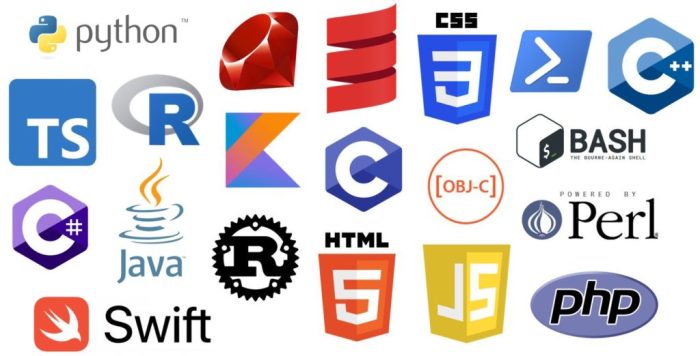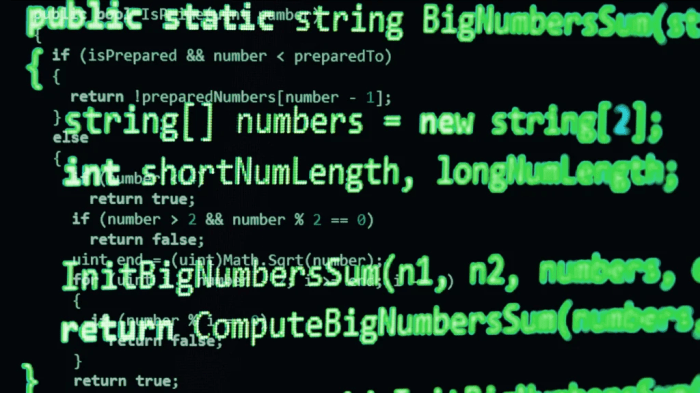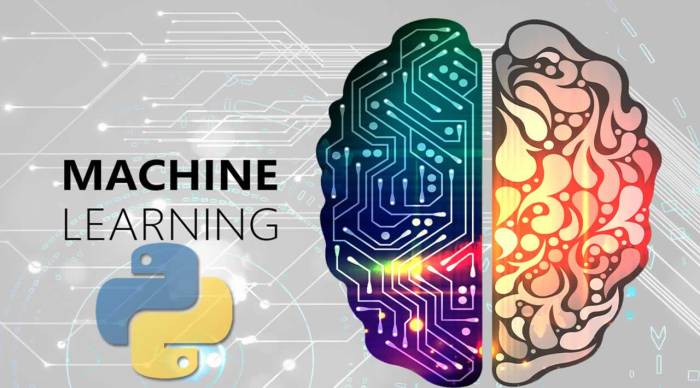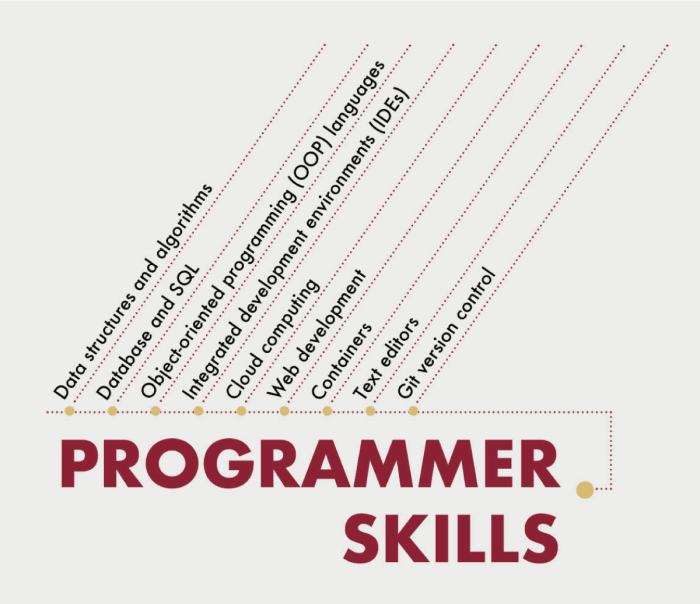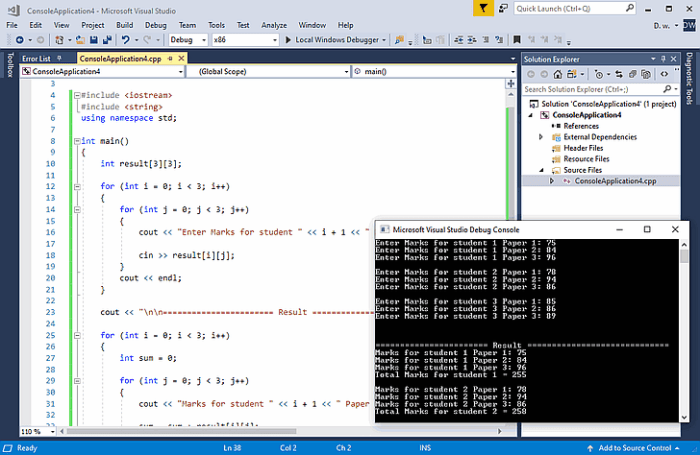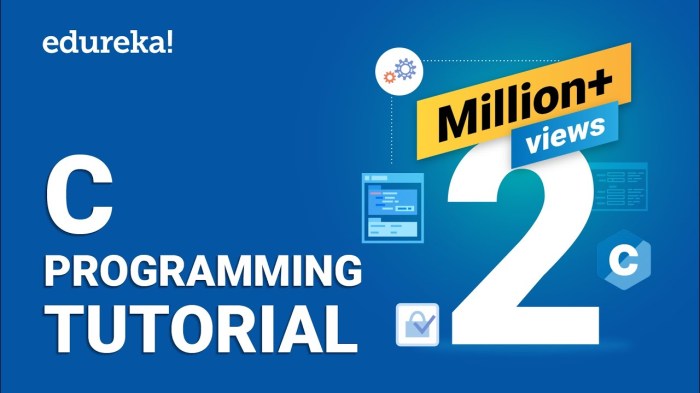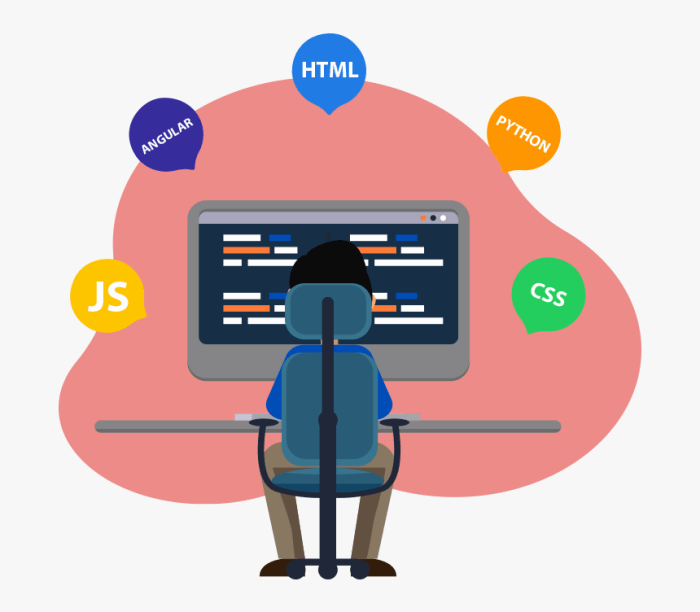
Embark on a journey into the world of Full-stack development programming, where creativity meets functionality, and innovation knows no bounds. Get ready for an immersive experience filled with insights, tips, and examples that will transform your understanding of software development.
Whether you’re a seasoned developer or just starting, this guide will equip you with the essential knowledge and skills needed to thrive in the dynamic field of Full-stack development programming.
Full-stack development programming
Full-stack development programming refers to the practice of developing both the front-end and back-end of a software application. This means that a full-stack developer has the skills to work on the user-facing side of the application as well as the server-side logic.
Role of a full-stack developer
A full-stack developer plays a crucial role in a software development team by being able to handle all aspects of the application development process. They can work on designing user interfaces, implementing features, writing server-side code, configuring databases, and deploying the application.
- Full-stack developers can switch between front-end and back-end development seamlessly, which makes them versatile and valuable team members.
- They can understand the entire software development lifecycle, from planning and design to implementation and maintenance.
- Full-stack developers can collaborate effectively with different team members, such as designers, product managers, and other developers.
Importance of full-stack development
Full-stack development is essential for creating robust applications because it allows developers to have a holistic view of the project. By being proficient in both front-end and back-end technologies, full-stack developers can ensure better communication between different parts of the application and streamline the development process.
Full-stack development helps in reducing dependencies on multiple team members and accelerates the development timeline.
- Full-stack developers can identify and solve issues more efficiently, leading to faster problem-solving and bug fixing.
- They can optimize performance and user experience by considering both the client-side and server-side aspects of the application.
- Having full-stack developers in a team can improve overall productivity and collaboration, as they can provide insights across different areas of the project.
Popular programming languages in full-stack development
In full-stack development, there are several programming languages that are commonly used to build robust applications. Some popular examples include:
- JavaScript: Used for front-end development with frameworks like React and Angular, as well as for back-end development with Node.js.
- Python: Known for its simplicity and readability, Python is used for back-end development with frameworks like Django and Flask.
- Java: Widely used for enterprise applications, Java is a versatile language that can be used for both front-end and back-end development.
- Ruby: Popular for web development, Ruby is often used with the Ruby on Rails framework for full-stack development.
Skills required for full-stack development
To excel in full-stack development, one must possess a diverse set of technical skills that encompass both front-end and back-end technologies. This allows developers to create robust and efficient web applications that meet the demands of modern users.
Essential Technical Skills
- Proficiency in programming languages such as HTML, CSS, JavaScript, Python, Ruby, or Java.
- Experience with front-end frameworks like React, Angular, or Vue.js for building user interfaces.
- Knowledge of back-end frameworks such as Node.js, Django, or Ruby on Rails for server-side development.
- Understanding of RESTful APIs to facilitate communication between front-end and back-end systems.
- Familiarity with version control systems like Git to manage and track changes in code.
Importance of Front-end and Back-end Understanding
Having a strong grasp of both front-end and back-end technologies is crucial for full-stack developers. It allows them to seamlessly integrate the user interface with the server-side logic, resulting in a cohesive and functional web application. By bridging the gap between these two components, developers can ensure a smooth user experience and efficient data processing.
Significance of Database Management Skills
Database management skills are essential for full-stack developers as they are responsible for storing, retrieving, and manipulating data within web applications. Understanding database systems like MySQL, PostgreSQL, or MongoDB enables developers to design efficient data structures, optimize queries, and ensure data integrity. This ensures that the application performs well and can scale to meet growing demands.
Tips for Staying Updated
- Regularly follow industry blogs, forums, and websites to stay informed about the latest trends and technologies in full-stack development.
- Participate in online courses, workshops, and webinars to enhance your skills and stay abreast of new tools and techniques.
- Engage with the developer community through social media platforms, meetups, and conferences to exchange knowledge and learn from peers.
- Experiment with new technologies and tools in side projects to gain hands-on experience and stay ahead of the curve.
Full-stack development tools and technologies
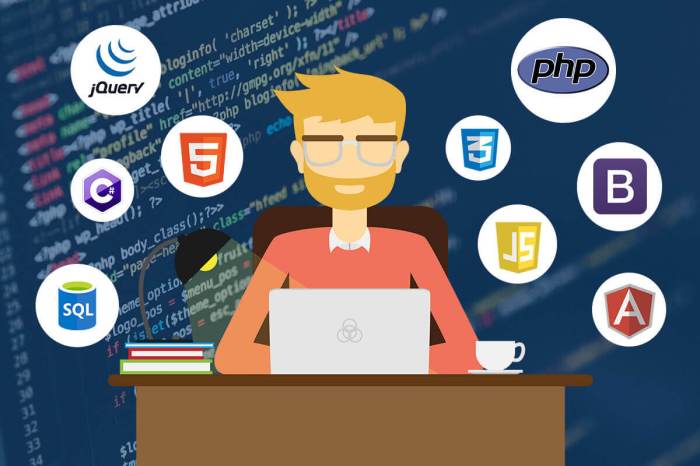
When it comes to full-stack development, having the right tools and technologies at your disposal is essential to streamline the development process and deliver high-quality applications. Let’s explore some of the common tools and technologies used in full-stack development.
Integrated Development Environments (IDEs)
Integrated Development Environments (IDEs) play a crucial role in full-stack development by providing developers with a comprehensive set of tools for coding, testing, and debugging applications. Some popular IDEs suitable for full-stack development include:
- Visual Studio Code: A lightweight yet powerful code editor with built-in support for various programming languages and extensions.
- IntelliJ IDEA: A feature-rich IDE designed for Java development, but also supports other languages like JavaScript, HTML, and CSS.
- Atom: A hackable text editor developed by GitHub, known for its flexibility and customization options.
Version Control Systems
Version Control Systems (VCS) are essential for managing full-stack projects effectively, allowing developers to track changes, collaborate with team members, and revert to previous versions if needed. Some popular VCS tools used in full-stack development include:
- Git: A distributed version control system widely used for its speed, scalability, and flexibility in managing code repositories.
- SVN (Apache Subversion): A centralized version control system that tracks changes to files and directories over time.
- Mercurial: Another distributed version control system that offers an easy-to-use interface and scalability for managing projects.
Choosing the Right Tools and Technologies
When selecting tools and technologies for a full-stack project, it’s important to consider factors like project requirements, team expertise, scalability, and community support. Here are some insights on how to choose the right tools and technologies for a full-stack project:
- Assess project requirements and choose tools that align with the project goals and objectives.
- Evaluate the skill set of your development team and select tools that they are familiar with or willing to learn.
- Consider the scalability of the tools and technologies to ensure they can support the growth of the project over time.
- Look for tools with active community support and regular updates to stay current with industry trends and best practices.
Computer Programming

Computer programming is the process of designing and building instructions for a computer to perform specific tasks. It involves writing, testing, and maintaining the source code of software applications. Programming languages are used to communicate with the computer and provide it with the necessary instructions to execute tasks.Front-end programming focuses on the user interface and user experience of a software application.
It involves creating interactive elements, such as buttons and forms, that users can see and interact with. Back-end programming, on the other hand, deals with the server-side logic of an application, managing data, security, and performance.
Importance of Algorithm Design and Problem-Solving Skills
Algorithm design is crucial in computer programming as it involves creating step-by-step procedures to solve specific problems efficiently. Problem-solving skills are essential for programmers to analyze issues, identify solutions, and implement effective strategies in software development.
- Programmers use programming languages like Java, Python, and C++ to write code for software applications.
- JavaScript is commonly used for front-end development to create dynamic and interactive web pages.
- SQL is used for database management to store and retrieve data efficiently.
- PHP is often used for back-end development to handle server-side logic and database interactions.
Effective algorithm design enhances the performance and scalability of software applications, improving user experience and overall functionality.
Final Review
As we wrap up our exploration of Full-stack development programming, remember that mastering both front-end and back-end technologies is key to creating cutting-edge applications. Stay curious, keep learning, and let your passion for development drive you towards endless possibilities in the world of software creation.
Helpful Answers
What is Full-stack development programming?
Full-stack development programming involves mastering both front-end and back-end technologies to create comprehensive and robust software applications.
Why is database management important in Full-stack development?
Database management skills are crucial in Full-stack development as they ensure efficient data storage, retrieval, and management in applications.
How can I stay updated with the latest trends in Full-stack development?
To stay updated, follow industry blogs, attend workshops, participate in online courses, and engage with developer communities to stay abreast of the latest trends.
